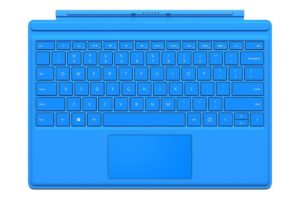A heated discussion on one of the many forums I frequent dredged up the usual desire and possible path for the “obviously superior” Linux to dethrone Microsoft Windows on the desktop. I think 1998 or 1999 was the first potential “Year of the Linux Desktop,” followed by every year thereafter. I’m sure in another 20 years we’ll be hearing the same thing.
I think it’s clear at this point that Windows will not be disrupted on the desktop by MacOS, Linux, or anything else in the traditional mold. The best bet is mobile OS’s continuing to encroach on desktop usage, a la Google’s Android (with, however deprecated, it’s own roots in Linux). Nevertheless, if Microsoft’s vision of one Windows (desktop, mobile, console, phone, hybrids) continues to bear fruit, then perhaps even that will be slowed, if not halted.
With the above in mind, it’s important to remember why DOS, and then Windows, became the standard. Too many competing, mostly incompatible platforms made mass adoption and interoperability extremely difficult. It’s easy enough to argue that 90%+ marketshare for DOS/Windows was a necessary evil to turn a smoldering computer industry into a fire (the Web was of course the propellant that turned that fire into an inferno).

MS-DOS – A necessary evil?
Fortunately, particularly for those in the anti-Microsoft camp, it’s clear that today we’re experiencing the best of both worlds, and that’s lots of different “standards” (i.e., choices like iOS, Android, ChromeOS, MacOS, Linux, Windows, etc.), while still maintaining a high degree of interoperability that’s critical to viability (key Web standards have arguably played the biggest role in this). So while the dream of unseating Microsoft is still not likely, at least there are viable alternatives for those who wish to utilize them. That seems like a win-win to me, so it doesn’t really matter what the ultimate market share or usage numbers are, or how they continue to fluctuate. Many of today’s viable platforms will still continue to thrive in their own way regardless of investor or fan boy obsession with who has a bigger share of the market.
Of course, going hand-in-hand with Windows and general Microsoft hate is a dislike for Microsoft Office and a trumpeting of quality free alternatives like Google Docs or LibreOffice, with many commenters wishing it was the latter that was the ultimate winner (due of course to a natural dislike for big, for profit corporations, even if it’s Google/Alphabet). One point that a commenter tried to make about continued Microsoft Office adoption in businesses despite free non-Microsoft alternatives was that IT/IS managers didn’t want to bother with the couple of hours it would take to train people on the new software. From what I’ve experienced in the business world, that’s ignoring more important factors, like guaranteed document compatibility and consistent tracked changes.
Genuine Microsoft Office is still the only way to ensure both of those things, which is why it’s not going to be dethroned any time soon. While there can always be better solutions for anything, there are advantages to standardizing on something good enough, although I’d argue that Microsoft Office, like Windows, is much better than “good enough” these days. Until we reach the same type of interoperability and superior compatibility we benefit from with the various operating systems, the one area where Microsoft will have no worries, much to the chagrin of its detractors, is with Office. Again, though, for general usage, it’s hard to argue with the availability of free alternatives (a Web-based version of Microsoft Office among them), which, as long as they continue to thrive (and there’s no reason to think they won’t), renders Microsoft Office’s dominance in business and professional use unworthy of the scorn heaped upon it.

You may not like Microsoft Office for any number of reasons, but you can’t say that it doesn’t work well.
Ultimately, this comes down to the expression of human nature that we’ve discussed in the past, and that’s the need to pick sides and identify with a specific group to the detriment of others. If you feel that your way is superior, it’s only natural to want to trumpet that “truth,” which in turn makes you feel better about your own decision. That’s where most of the hate for Microsoft or any other entity like it comes from, and because of that human nature, it’s a genuine (i.e., not forced) expression. It doesn’t make that perspective right, though.






 Your total news and information resource for all things Science, Technology, Engineering / Mathematics, Art, and Medicine / Health.
Your total news and information resource for all things Science, Technology, Engineering / Mathematics, Art, and Medicine / Health.
Leave a Comment